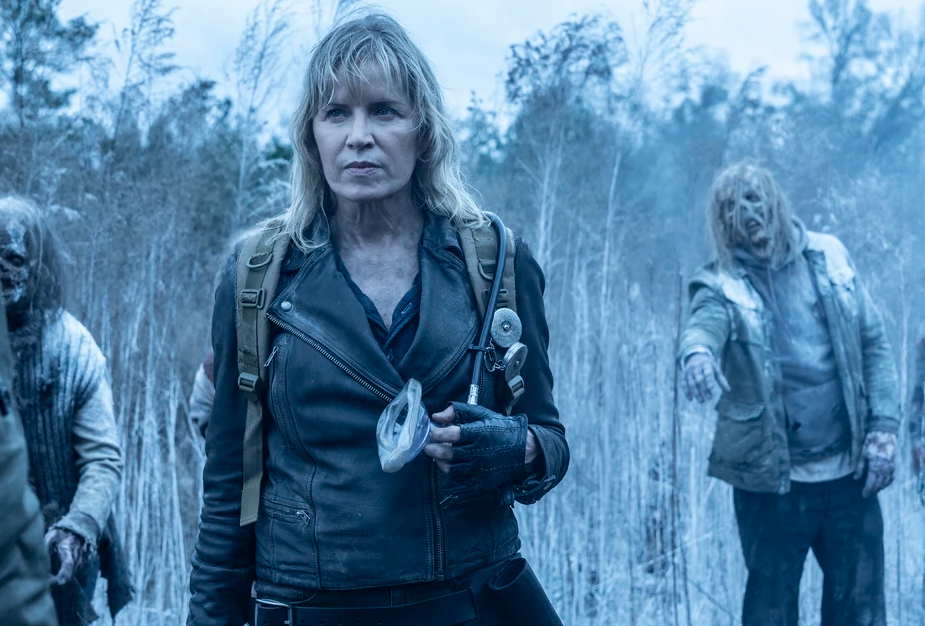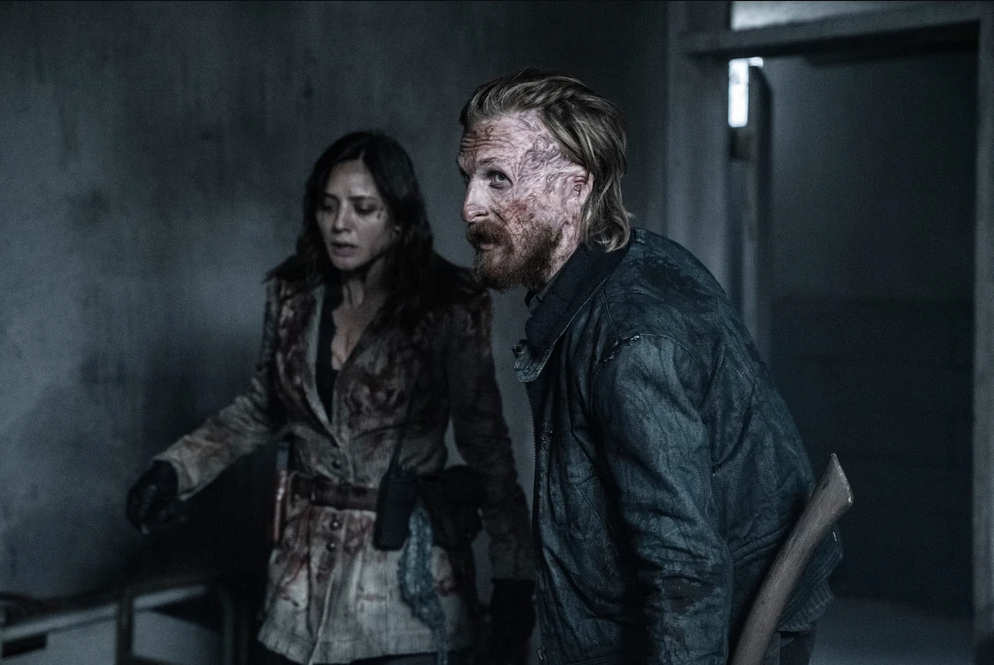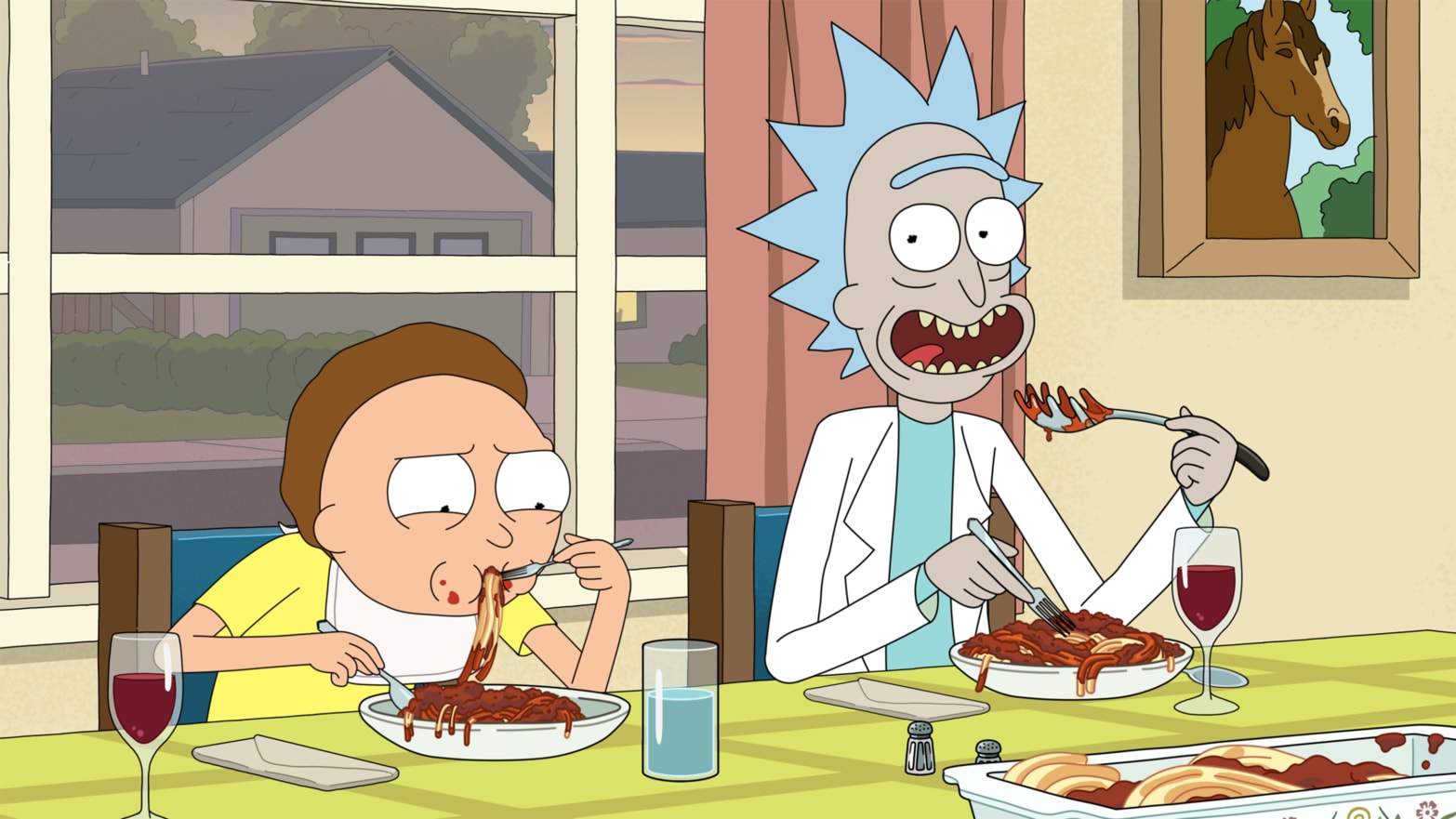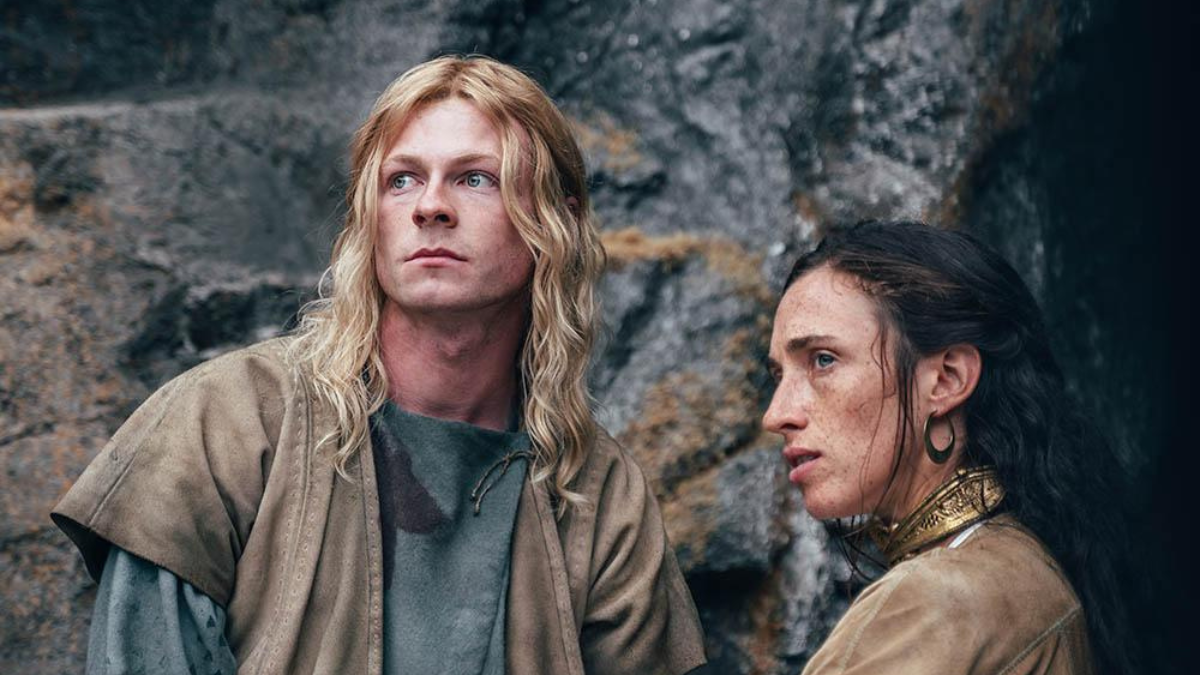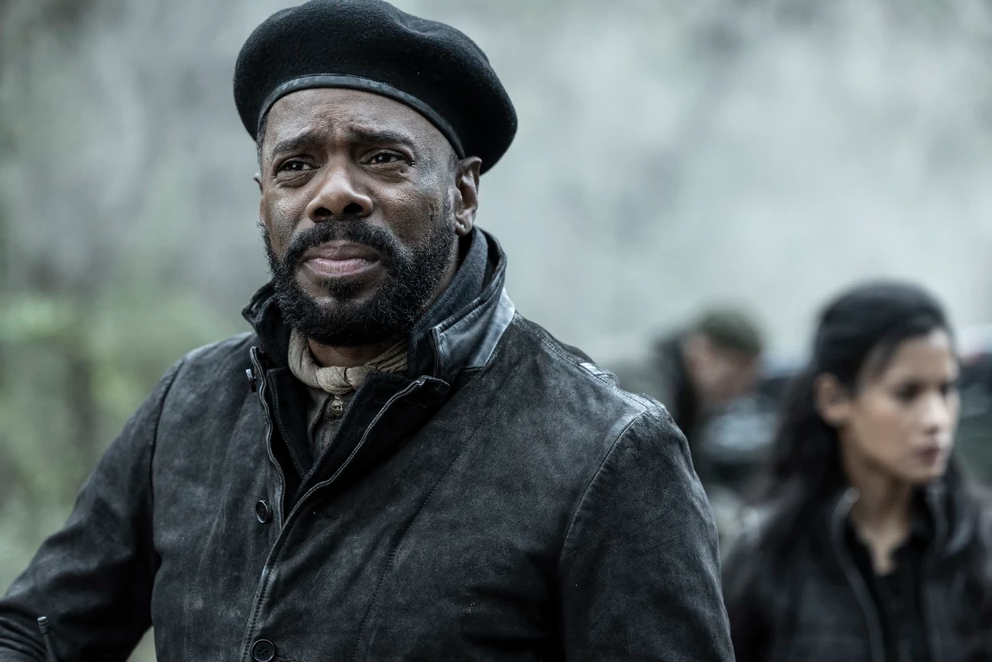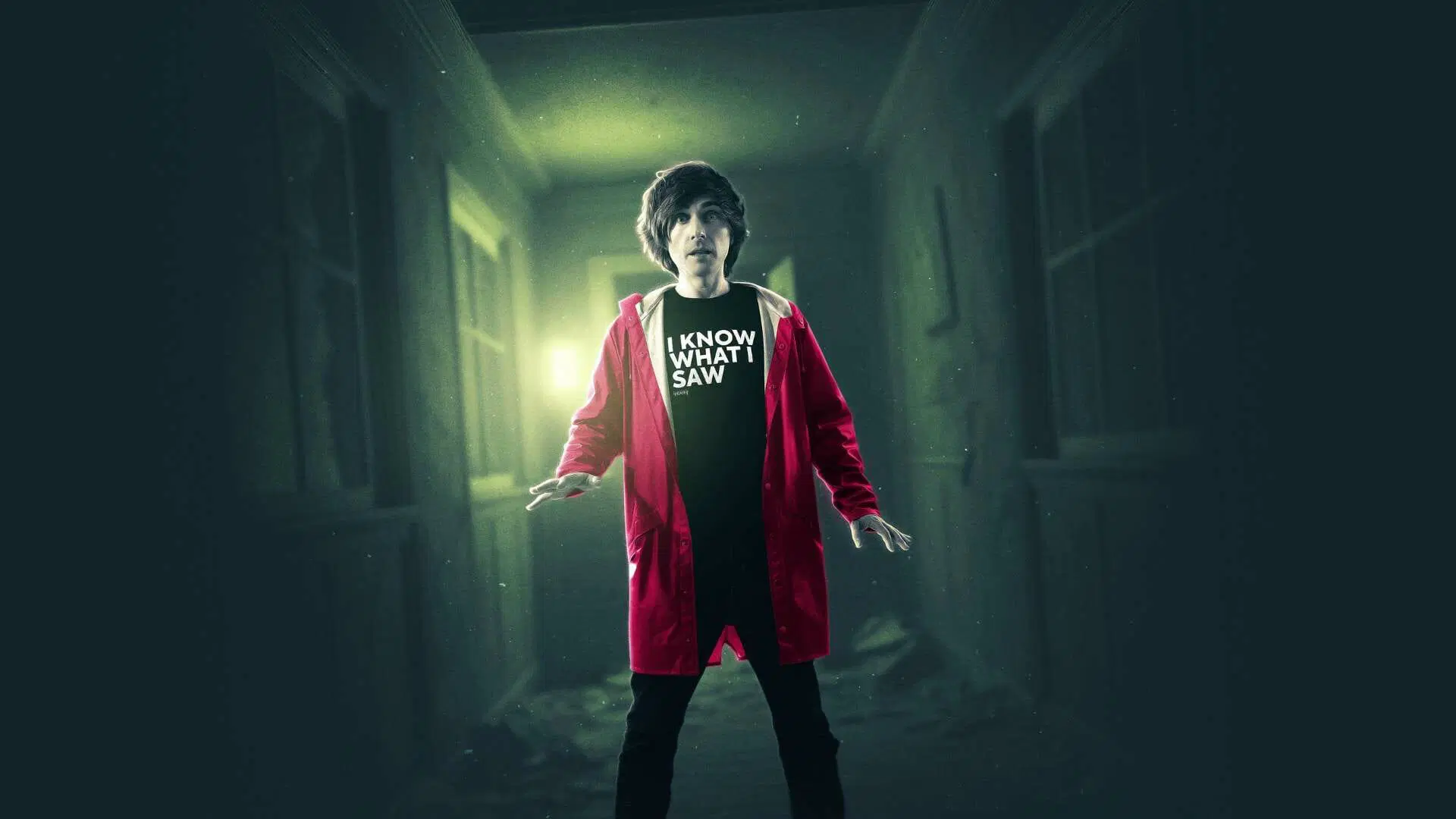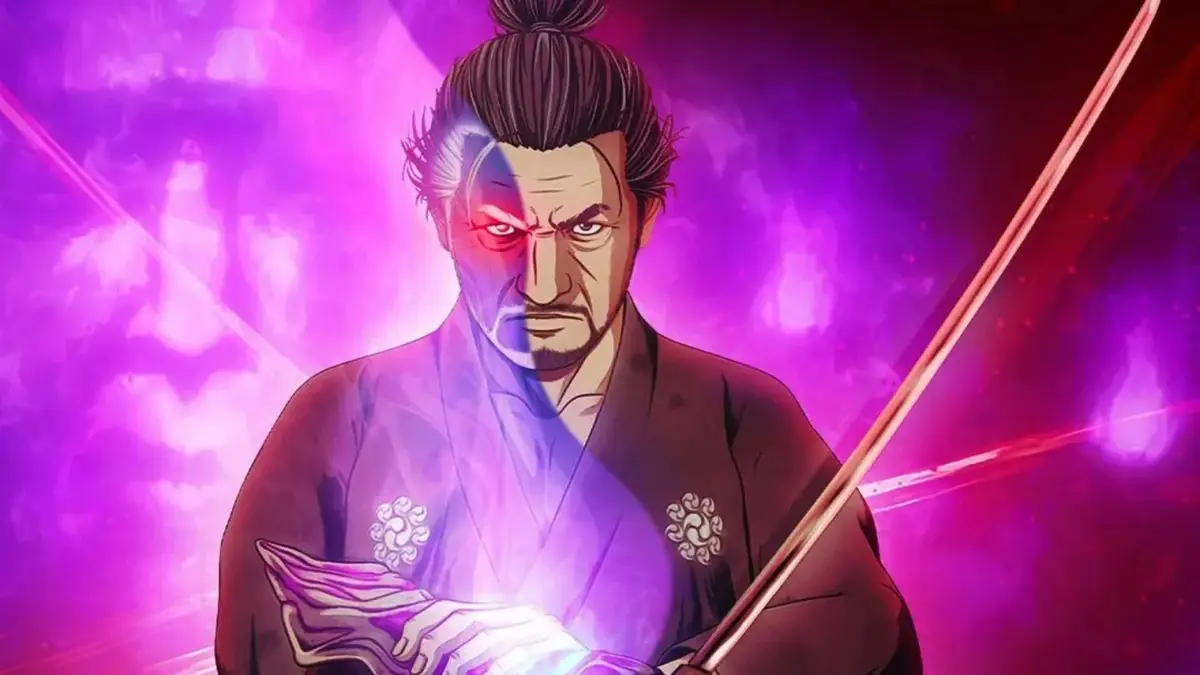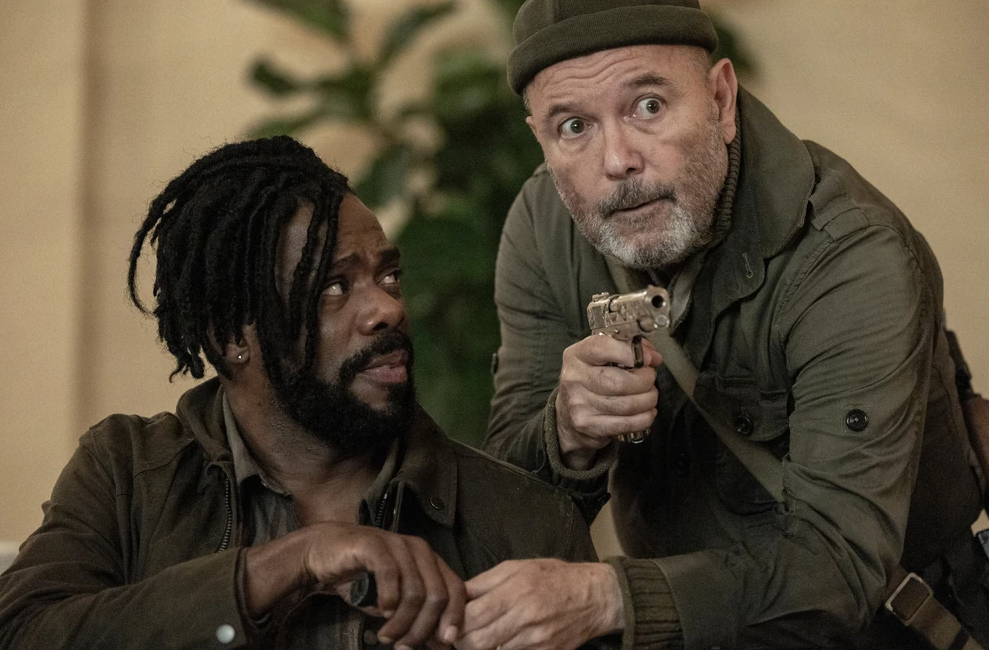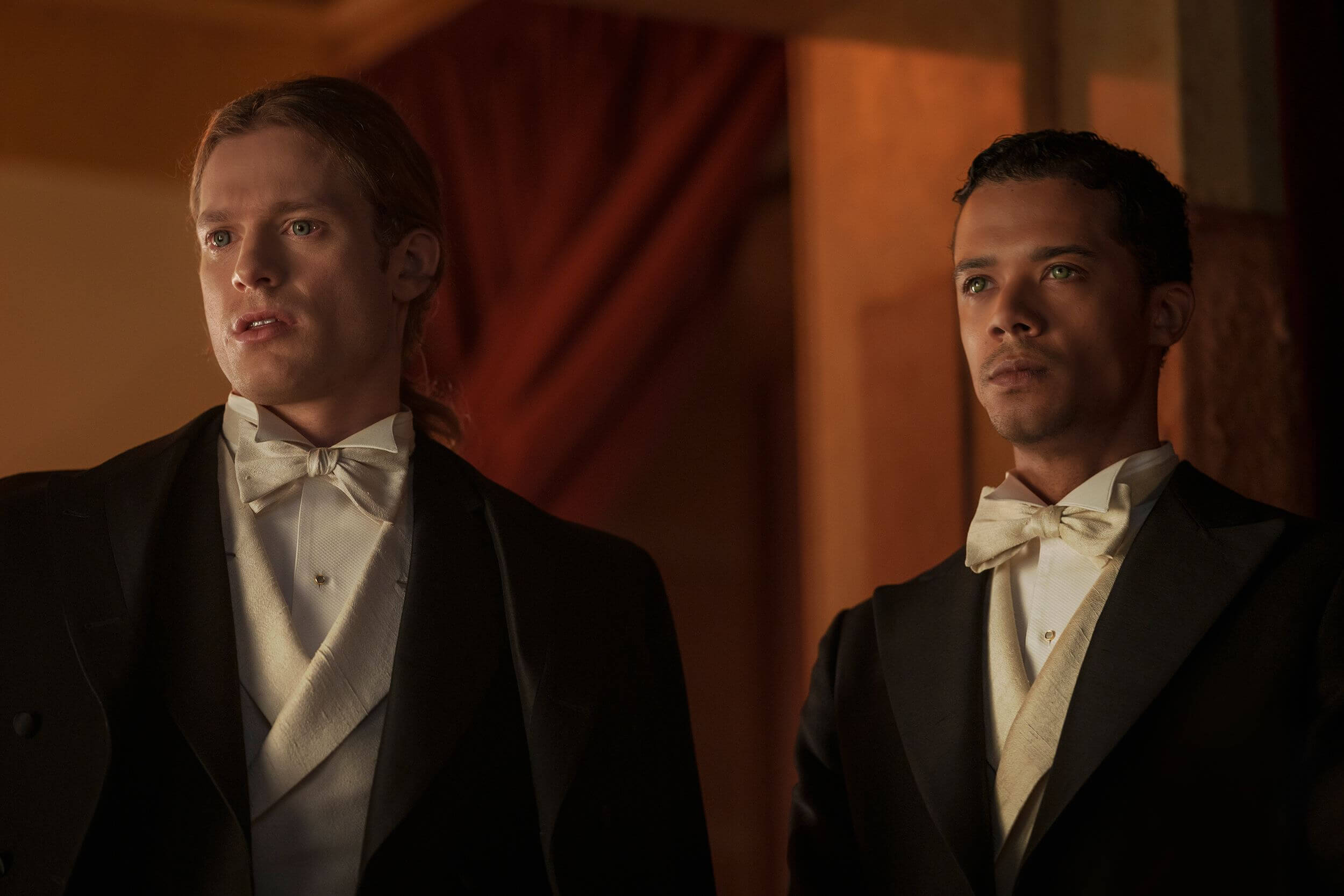“This is not the way to end this,” Strand yells at Madison at the episode’s end as she once again storms off on a solo vendetta, leaving everyone else watching her go. With just three instalments of Fear left, it’s hard not to read Strand’s comments as a meta-critique about the series’ own endgame.
This story builds the growing sense of foreboding about just how bad the upcoming two-part finale might be. And, although it’s up against some stiff competition, Keeping Her Alive may just edge it as the worst-ever episode of Fear. It’s a crashing, infuriating failure on every level.
June, Dwight, Sherry and Dove arrive back at PADRE to find that the German émigrés have settled in, and Strand has, as instructed by Madison, assumed command. Learning that Strand has kidnapped Troy’s young daughter Tracy as leverage, a row breaks out over what to do next. Eventually, June and her colleagues prevail, and it’s agreed to hand over both Tracy and Strand in the hope of placating Troy and protecting PADRE from attack. After he engineers an escape from their riverboat transport, Strand and Tracy stumble across Madison, who’s dealing with her rage by battering walkers she lures in with her boom-box.
When Tracy promises she can take Madison to the living corpse of her daughter Alicia, the three of them set off, hoping to evade detection. But other players are also active in the field, including Luciana’s and Daniel’s tanker crews, June’s and Dwight’s posse (now on the hunt for Strand), Troy’s raiders, and a mysterious trio of young women travelling in an infamous armoured car. All of these different roving groups connect and collide as the events of Keeping Her Alive unfold and the fight to settle the future of PADRE takes shape.
But it’s not the scattergun, random plot points in what’s frankly a risible script by Nazrin Choudhury and Calaya Michelle Stallworth that’s the key problem. It’s the usual suspects in too many later-period Fear stories – inexplicable about-turns by characters whose natures and motivations are rewritten on a whim. But here, in episode ten of twelve, those all-too-familiar weaknesses are amplified by showrunners seemingly unconcerned by coherence or credibility and convinced that viewers will recall nothing of the show’s history. As a result, Keeping Her Alive is 50 minutes of really bad television.
Things get off to an implausible start when the PADRE returnees decide to sacrifice Strand on the ridiculous assumption that Troy will be so grateful as to give up on his plan to take their home from them. That makes about as much sense as the way that Strand’s and Tracy’s escape is staged or their fortuitously timed encounter with Madison, the way they ensnare Daniel and Luciana in their hunt, or even the way that Madison’s quest to find Alicia’s cadaver unravels (as allies fall out, split up and reunite – only to start pointing guns at each other again).
No one seems particularly upset that Strand’s and Madison’s reckless decisions lead directly to the slaughter of most of Luciana’s community or that an unhinged Madison comes agonisingly close to being a child killer. All this and more happens while PADRE is left unprotected by its leader (Madison), its stand-in boss (Strand) and its indispensable military commander (Dwight). PADRE’s kids must feel very reassured about their security.
Madison’s obsessive behaviour means it’s hard to maintain empathy over her quest for answers about her daughter’s fate. Tracy’s attempt to trick Madison as to Alicia’s whereabouts generates little tension and serves no real purpose. This surely had to be the last dead-end in her search. This plotline (if not necessarily Alicia) must finally to be laid to rest next week.
In a throwaway line at the end of the battle at her compound, Luciana reveals that Troy’s men didn’t seem to care if they lived or died. But Troy isn’t a messiah on a mission, he’s just a thug with grievances. Are the writers really trying to inject a whole new backstory about a Troy ‘cult’ into the penultimate episode? The arrival of the trio of Alicia acolytes is an equally unearned development – and pointless, as Madison ignores them and steals their truck.
The showrunners may have saved their budget for the finale, but this episode feels particularly cost-conscious. Troy’s ice walker army (don’t ask) looks woeful, while the most significant firefight occurs unseen off-screen. It is just possible that, from this shambolic low point, the current custodians of Fear can launch a finale able to do justice to the themes and aspirations with which the show’s original creators began. But on the evidence here, the odds are against it.
New episodes of FEAR THE WALKING DEAD – SEASON 8 premiere on Mondays on AMC in the UK.

Read our previous reviews of FEAR THE WALKING DEAD below:
Season 8, Episode 1, REMEMBER WHAT THEY TOOK FROM YOU
Season 8, Episode 2, BLUE JAY
Season 8, Episode 3, ODESSA
Season 8, Episode 4, KING COUNTY
Season 8, Episode 5, MORE TIME THAN YOU KNOW
Season 8, Episode 6, ALL I SEE IS RED
Season 8, Episode 7, ANTON
Season 8, Episode 8, IRON TIGER
Season 8, Episode 9, SANCTUARY

